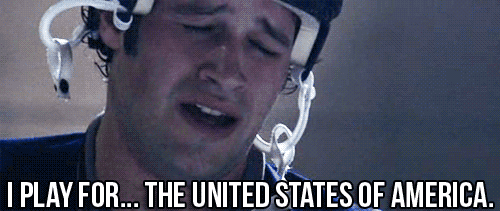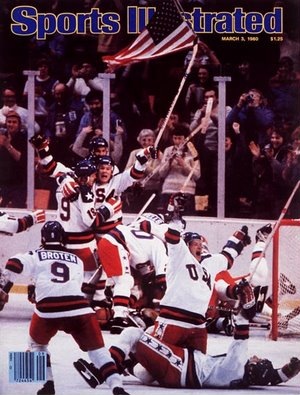Returning to the toxic masculinity series, this post will focus on violence in sports, more specifically violent language. Firstly, we need to consider the effects language can have. Language is an incredibly powerful tool used to inspire, persuade, and motivate. Every good sports film has a motivational speech, for Mighty Ducks it was “I’m proud to be a duck”, for Remember the Titans it’s the Battle of Gettysburg speech, and for Miracle well hey…
Often, sports are framed as some sort of battle. These sport-war metaphors include calling players warriors or fighters, encouraging them to give blood for the team, the win is hard fought. Remember, we’re talking about modern day sports, not gladiators fighting to the death. These phrases can encourage risk taking – keep playing on through injury, making dangerous plays for your team’s advantage. It also seeks to emphasise the masculinity involved within being a Sporting Hero: Traditionally, it’s the men who go to war and it’s the men who play sport because they’re big, strong, protective, brave, valiant et cetera. You’re in pain? Too bad, buddy, we’re in a war. Following 9/11, research looked at fan’s perceptions of sport-war metaphors, and dedicated fans tend to endorse their use rather than reject them.
Sport-war metaphors have been used in real wars, particularly the Persian Gulf War, in information released by the Pentagon and by media outlets. A general in the Gulf War, Norman Schwartzkopf, described the strategic plan of the ground war as “the Hail Mary play in football” and pilots who returned from the Baghdad bombings described it as “a football game where the defense never showed up“. Comparing a war to a sports game downplays the severity of it. It minimises the innocent lives lost; the casualties of war, and the cost to society. It paints winning a war as something to be triumphant about, as if a trophy ought to be handed over. However, on the reverse, when sport-war metaphors are used in a sporting context, they are there to maximise efforts and emphasise the importance of the match.
In the 1980 Winter Olympics, the Soviet Union came up against the United States of America in the ice hockey semi final match. The Soviet Union had won six out of seven of the previous Olympic competitions, so they were a force to be reckoned with, and the USA team was made up of collegiate athletes. The match came during a tense time, politically, with the two countries in the midst of the Cold War. With Americans fearing the threat of a Russian attack, the match came to be a poignant reflection of the political situation. The United States won the game 4-3 and went on to defeat Finland in the gold medal match. The Soviet Union won bronze over Sweden.
Which is harder, winning a war or winning a football game?


